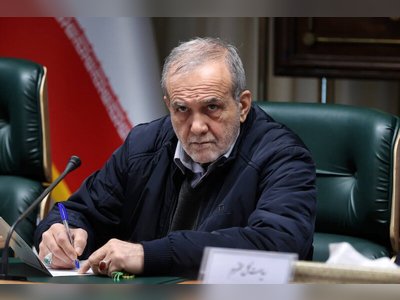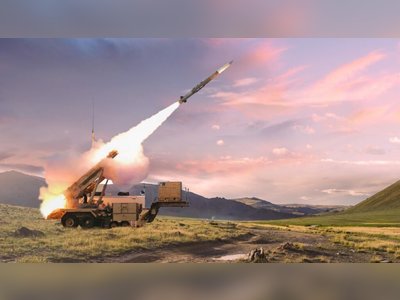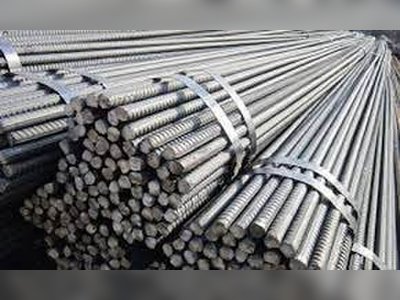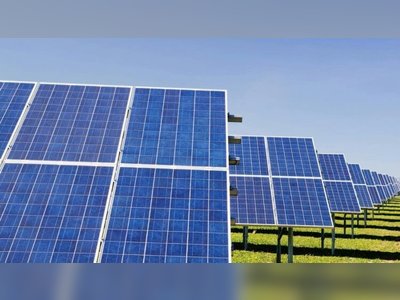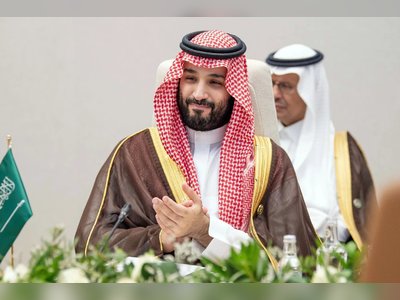
Governments Unable to Sustain Long-Term Support for Emission Reduction Initiatives in Companies
Artificial Intelligence Applications in Oil Exploration and Production Industry Valued at $2 Billion.
During the sessions of the Petroleum Technology Conference held at the Dhahran Expo Center, Nasser Al-Naimi, Head of Exploration and Production at Saudi Aramco, emphasized the company's focus on oil and gas due to the increasing demand for these products. He noted that Saudi Aramco is capable of expanding its gas production capacity over the next ten years, aiming to achieve a production rate of one million barrels of liquefied gas daily. This is expected to establish a balance with traditional gas supplies. Al-Naimi highlighted Aramco's efforts in tackling the issue of gas-for-liquid substitution and mentioned that the company has a 3-million-barrel production capacity reserved for emergency situations anywhere in the world to promptly meet customer demands. Reinforcing the company’s responsibility to provide global energy supplies, Al-Naimi underscored the significance of supporting the sustainability of these energy supplies. He noted Saudi Aramco's keen interest in investing in digital technologies, revealing plans to create future digital platforms in the domains of exploration, production, refining, marketing, as well as chemical sectors.
During the opening session titled "Managing Uncertainties for a Prosperous Future," part of the second day of the Petroleum Technology Conference organized by Saudi Aramco at the Dhahran Expo Center, Al-Naimi also spoke about Aramco's full utilization of artificial intelligence capabilities, mentioning that the company will diversify its activities in the liquefied natural gas sector. He pointed out that new forms of energy, such as hydrogen and synthetic fuels, are being considered, adding that research in these areas is advancing, alongside traditional energy forms popular in the United States.
He mentioned the prevalence of artificial intelligence applications in exploration and production, acknowledging that the value of these applications was estimated at $2 billion in 2023. Al-Naimi stressed the importance of focusing on artificial intelligence to address the challenges of the oil and gas industry and called for appropriate data management to handle the vast amounts of data generated in these sectors, which include about 80 million data units that are being digitalized. He emphasized the importance of data quality and the need to upskill engineering staff to leverage these technologies.
Al-Naimi confidently noted that Saudi Aramco will continue to reduce costs in blue hydrogen production by 2030, though he admitted progress in this area has been slow. He underlined the importance of persistent long-term action and stated the company's commitment to carbon capture, announcing the creation of the largest carbon capture facility in Jubail, set to be completed by 2027.
Montree Rawaikul, CEO of PTT Exploration and Production Public Company Limited, accentuated the necessity of secure energy supply, urging the industry to provide environmentally-friendly oil and gas resources. He observed significant hikes in energy prices over the last two decades and called for constant readiness to face uncertain market conditions through the use of hydrogen and renewable energy technologies. Rawaikul anticipates a substantial reduction in carbon emissions within the next 20 years due to major industry shifts, suggesting a new wave of investments in energy. He emphasized striving for optimal technology use and leveraging talent and expertise within the industry, noting the imperative of exploring cleaner solutions within the oil and gas sector.
Echoing Rawaikul's sentiments, Jack Williams, Senior Vice President of ExxonMobil, emphasized three focal points for the upcoming period: investing in energy and technology sectors, launching initiatives for low-carbon product solutions, and acknowledging that governments are unable to offer long-term emission reduction support for companies. He highlighted ExxonMobil's multi-million investments in technological fields and innovative minds, advocating for technology utilization in diminishing carbon emissions through carbon capture, utilization, and storage (CCUS), as well as emphasizing biofuel use and cost reduction in production.
Olivier Le Peuch, CEO of Schlumberger, projected increased energy demand and a parallel necessity to curtail emissions. Post-COVID-19, the energy industry has faced daunting challenges and commitments to carbon reduction. Le Peuch emphasized his company's concentration on carbon removal from all aspects of their operations and advocated for the use of artificial intelligence and comprehensive data systems to enhance safety and minimize risks. He proposed capturing and sequestering 20-30% of carbon levels underground as part of an effort to achieve net-zero goals, emphasizing the vital importance of reducing carbon capture costs and developing relevant technologies. He foresees a surge in carbon extraction investments in the coming years to facilitate this application across various sectors.
The industry leaders called for resilience and strategic partnerships to lower carbon emissions, stressing the need for incentives to sustain efforts to tackle global energy challenges and advance towards a more environmentally sustainable future.
During the opening session titled "Managing Uncertainties for a Prosperous Future," part of the second day of the Petroleum Technology Conference organized by Saudi Aramco at the Dhahran Expo Center, Al-Naimi also spoke about Aramco's full utilization of artificial intelligence capabilities, mentioning that the company will diversify its activities in the liquefied natural gas sector. He pointed out that new forms of energy, such as hydrogen and synthetic fuels, are being considered, adding that research in these areas is advancing, alongside traditional energy forms popular in the United States.
He mentioned the prevalence of artificial intelligence applications in exploration and production, acknowledging that the value of these applications was estimated at $2 billion in 2023. Al-Naimi stressed the importance of focusing on artificial intelligence to address the challenges of the oil and gas industry and called for appropriate data management to handle the vast amounts of data generated in these sectors, which include about 80 million data units that are being digitalized. He emphasized the importance of data quality and the need to upskill engineering staff to leverage these technologies.
Al-Naimi confidently noted that Saudi Aramco will continue to reduce costs in blue hydrogen production by 2030, though he admitted progress in this area has been slow. He underlined the importance of persistent long-term action and stated the company's commitment to carbon capture, announcing the creation of the largest carbon capture facility in Jubail, set to be completed by 2027.
Montree Rawaikul, CEO of PTT Exploration and Production Public Company Limited, accentuated the necessity of secure energy supply, urging the industry to provide environmentally-friendly oil and gas resources. He observed significant hikes in energy prices over the last two decades and called for constant readiness to face uncertain market conditions through the use of hydrogen and renewable energy technologies. Rawaikul anticipates a substantial reduction in carbon emissions within the next 20 years due to major industry shifts, suggesting a new wave of investments in energy. He emphasized striving for optimal technology use and leveraging talent and expertise within the industry, noting the imperative of exploring cleaner solutions within the oil and gas sector.
Echoing Rawaikul's sentiments, Jack Williams, Senior Vice President of ExxonMobil, emphasized three focal points for the upcoming period: investing in energy and technology sectors, launching initiatives for low-carbon product solutions, and acknowledging that governments are unable to offer long-term emission reduction support for companies. He highlighted ExxonMobil's multi-million investments in technological fields and innovative minds, advocating for technology utilization in diminishing carbon emissions through carbon capture, utilization, and storage (CCUS), as well as emphasizing biofuel use and cost reduction in production.
Olivier Le Peuch, CEO of Schlumberger, projected increased energy demand and a parallel necessity to curtail emissions. Post-COVID-19, the energy industry has faced daunting challenges and commitments to carbon reduction. Le Peuch emphasized his company's concentration on carbon removal from all aspects of their operations and advocated for the use of artificial intelligence and comprehensive data systems to enhance safety and minimize risks. He proposed capturing and sequestering 20-30% of carbon levels underground as part of an effort to achieve net-zero goals, emphasizing the vital importance of reducing carbon capture costs and developing relevant technologies. He foresees a surge in carbon extraction investments in the coming years to facilitate this application across various sectors.
The industry leaders called for resilience and strategic partnerships to lower carbon emissions, stressing the need for incentives to sustain efforts to tackle global energy challenges and advance towards a more environmentally sustainable future.





